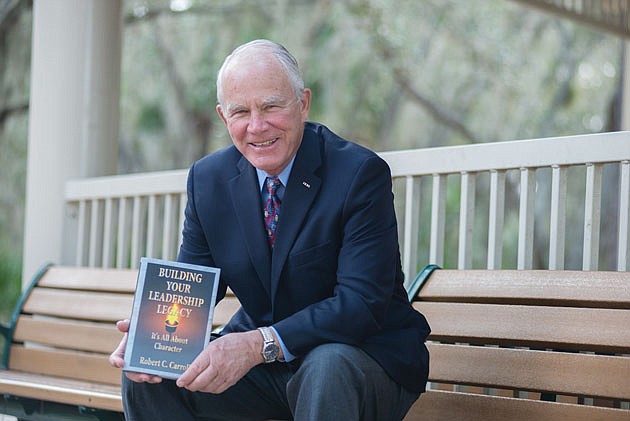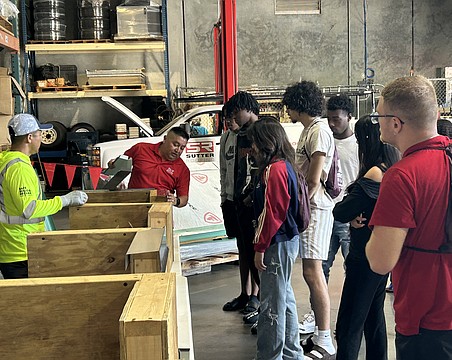Bob Carroll graduated West Point when he was 23, at the cusp of the Vietnam War, with a sobering thought: He knew a lot about tactics, planning and battlefield strategies. He knew little, he admits, about how to communicate his knowledge to others.
“I realized I wasn't the top of the class in communicating,” he says. “So I literally studied grammar. I studied how to read and write. I went to Toastmasters classes. I read every issue of Time magazine to improve my vocabulary.”
The education paid off. Carroll, 77, went on to lead a platoon and a company in the Vietnam War, and retired at the rank of colonel. Later, in civilian life, he worked his way up in senior leadership roles at community banks in Buffalo, N.Y., and coached executives in a variety of fields. He also went back to West Point, where he taught leadership and leadership policy to cadets and command sergeants.
But his push to become a great communicator, he says, was one of the best career decisions he ever made. “I knew that communicating — written and orally — were essential for good leadership,” says Carroll. “I think a lot of leadership gurus and instructors don't place a high enough premium on the ability to communicate.”
That message is one of several themes in a new book Carroll, a resident of Manasota Key in Charlotte County, recently wrote, “Building Your Leadership Legacy: It's All About Character.”
Following the subtitle, Carroll believes anyone in a company or organization could be a leader. But being a good leader, or a great leader, he contends, requires being a high-quality person, not merely a highly accomplished extrovert.
For example, Carroll writes about grit and determination — something he considers a top character trait. Someone's grit, he says, is shaped by his or her surroundings and upbringing when they are younger. But like many other character traits, it doesn't have to be static. “The trick is to figure out where on the scale you are for any value you hold dear and will make you a better leader,” writes Carroll. “Moving up that scale is a lifelong quest.”
Carroll recently sat down with the Business Observer to talk about his career, leadership and why character matters. Edited excerpts from the interview:
What defines a good leader?
There are two broad categories. One is they are competent at their jobs. And the second is that they have character that enables them to be trusted by their team members.
The competency thing is, if somebody doesn't know what they are doing and they just start telling you, 'I want you to do this,' and they are just a doofus at their job, at any level, you don't want to follow them because you don't trust them to be successful. Likewise, if someone is of poor character, they are not honest, they don't respect people, they are not accountable, then people won't trust them. People automatically trust someone they can look up to, and they look up to someone who has high character values.
What do executives misunderstand about developing leaders in the workplace?
Leadership is pervasive. I would argue everyone is a leader, the schoolteacher in kindergarten is a leader, and some stay-at-home moms are leaders in their family. My definition of leadership is to influence another person (a definition he attributes to former U.S. President Dwight Eisenhower in the book.) Few people aren't leaders, but most of the time they don't consider themselves to be leaders.
If you have a backbone or moral courage to speak up, not just battlefield courage, people will look up to that. That is not an either-or thing. We all have degrees of that. You have to think of it as a spectrum. When people say you either have character or you don't, or you have integrity or you don't, that it's binary, that dichotomy is a disservice. I believe you can develop your character throughout life.
People teach you how to write, how to think, how to vision, how to do a strategic plan, how to run a meeting, how to coach someone. What they miss is the fundamental value that teaches people how to do these things better, namely character. I'm fascinated by how little is done in the area of character development for leadership in academia. It's just a missing ingredient.
Where did you develop your core character values?
It starts with family. I had a mother and father who were exemplary. My dad was a successful Army officer who worked for Eisenhower in the White House. I was 14 when he died, but the core values I have, I got from him.
What did you learn about leadership while serving in the Vietnam War?
I worked for a general in Vietnam, Jack Deane (a decorated Army official who also served in World War II and the Korean War and was awarded a Purple Heart.) He really backed me to the hilt. I was a company commander when I was 26 years old and we got into a firefight. We had a bunch of guys wounded and a few killed. We basically got our clock cleaned.
He came down the next day and we sat down on a rock and talked for an hour. He wanted to know what I had done every step of the way. I wasn't too happy to see him. But I went through the whole thing.
I actually wasn't really quite sure how I had done. I was up all night and I guess I did some things that were relatively brave. But I wondered if I had kept my cool, and did I give the right instructions? I thought I was going to be relived of the command because of what happened.
But (Deane) actually put me in for the Silver Star and fired my battalion commander. Turns out the battalion commander had given me orders that were in contravention of Deane's orders. Deane's orders never got down to me, and he blamed my commander. He reaffirmed that I did the best job I could under the circumstances. And he rewarded me for it.
Deane was searching for the truth of what actually happened, not going on hearsay. That's a good value. And he took strong action to reward those who did right and punish those who he felt didn't do a good job. That was also something I valued.
Who are other military leaders who influenced you?
John Johns, my boss when I was teaching at West Point, is maybe the best leader I ever had. I was a major and he was a lieutenant colonel. He was brilliant. And his communications skills were stellar. He could write simple but effective instructions. And he could speak on difficult subjects very well. He told me how I could improve some things, but he was always supportive in his coaching. And I always knew he had my back. That's a great feeling, when you know your leader will back you.
How can a good leader overcome failure?
One that's high on my list is accountability. I think that's crucial. You have to be accountable for your actions and your behavior. That's high on my list. So the first thing to do when something doesn't go right is to take accountability. That's a fundamental first step. But a lot of people can't do that. They look for blame.
The next thing is to look back and really think about what you did, what went wrong, what went right, and what you could do differently next time. You have to understand what happened and learn from your mistakes.
How does a good leader make decisions?
The first thing is to gauge it in terms of impact — is it large or small. Does it impact people or not, because that's a whole different dimension. Does it have to be fast or do I have some time to think about it? If you have time, you want to consider diametrically opposed opinions.
I also find that a plus-and-minus T-chart is really good. My wife (Betty Sue) who died a few years ago, was livid when she found out that at age 32 I did a T-chart on her, on whether or not I should marry her. On the plus side, I had her wonderful smile; she was smart and sociable; and she likes my friends. On the negative side, she wasn't Catholic. But we were married 43 years, so I guess it was a good decision. It was the best thing I ever did.






